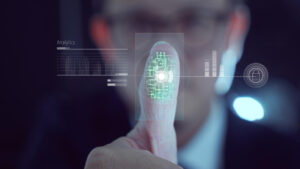The widespread use of biometrics can be seen in our everyday lives from the buses we board to the employee check-ins we make noted Bahaa Abdul Hadi. A key area where biometrics has been well-received is in the field of travel and tourism. Airports around the world are employing biometrics in the form of facial detection, iris scanning and fingerprint scanning to streamline the arrival and departure of passengers.
Airport security has fully embraced biometrics for a number of reasons. It saves a lot of waiting time, ensures a hands-free travel experience and records and maintains passenger details very efficiently. Most countries now follow this but the United States and China pioneers biometrics in airport security. Today, it has become a common sight everywhere.
Pros of biometrics in travel
– Automation
The impact of biometrics is felt in every aspect of traveling through an airport from the check-in process, luggage tagging to verification and boarding. This is in contrast to immigration checks that previously required lengthy queues and documentation.
– Speed
The speed with which biometrics carries out facial, iris and fingerprint scanning is unmatched by traditional methods of airport security. Registering and retaining traveler information is also easier and quicker than ever.
– Accuracy
Biometrics along with cutting-edge A.I. advancements are penning a new chapter in the future of biometric software. The technologies that power airport security are impressively accurate. When looking up traveler data, the minute details recorded by biometrics return precise matches from database.
– Time-saving
Biometrics has done away with the hassles of multiple checks at airports. Once your prints are registered, you can seamlessly shop around the airport and then board without showing your ID and boarding pass.
– Paperless travel
Soon, physical tickets and boarding passes will become a thing of the past. Many airports directly use facial recognition biometrics instead of passport verification. This will come as a relief to those who find it hard to keep up with printing everything like our tickets, visa and Covid certificates.
Cons of biometrics in travel
Even though biometrics employed by airports has improved the traveler experience, there are still some gaps in the system that need to be bridged. There has been criticism about racial undertones in the facial detection software used around the world. Sometimes, travelers of a particular ethnicity also take longer to be recognised by the biometrics at airports.
Voice recognition biometrics is still in the burgeoning stages and needs more research and improvement. Some passengers also note the whole process feels like excessive digital formality as the prints are recorded and maintained for long after their departure. Nonetheless, biometric software plays an indispensable role in streamlining cross border checks.
The blog has been authored by Bahaa Abdul Hadi and has been published by the editorial board of identity herald. For more information, please visit www.identityherald.com




